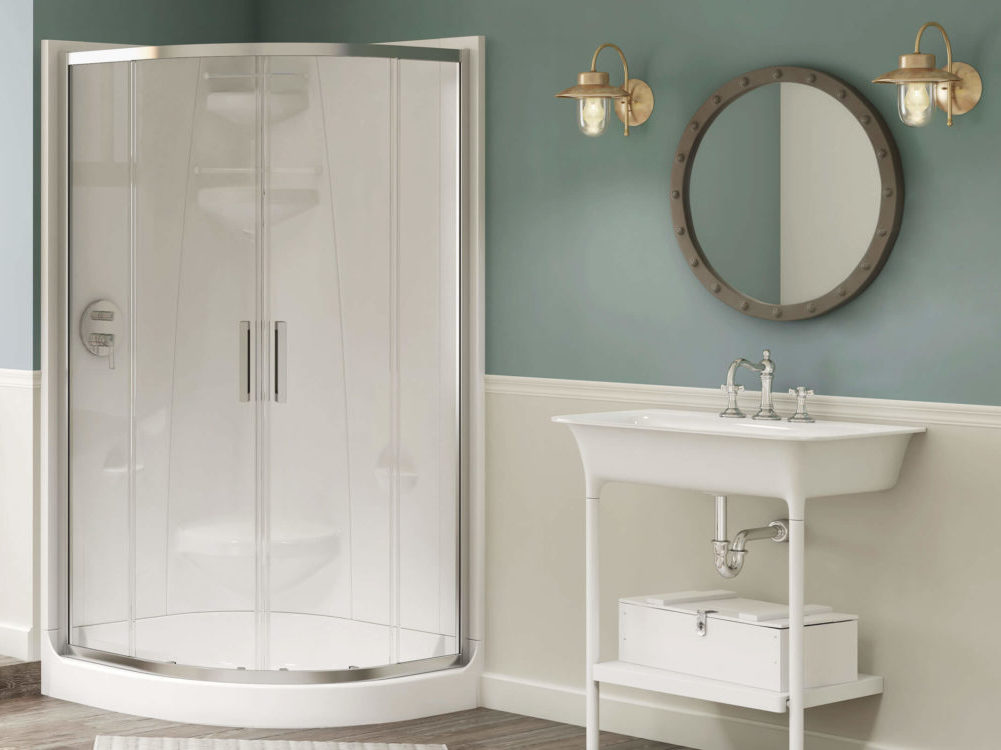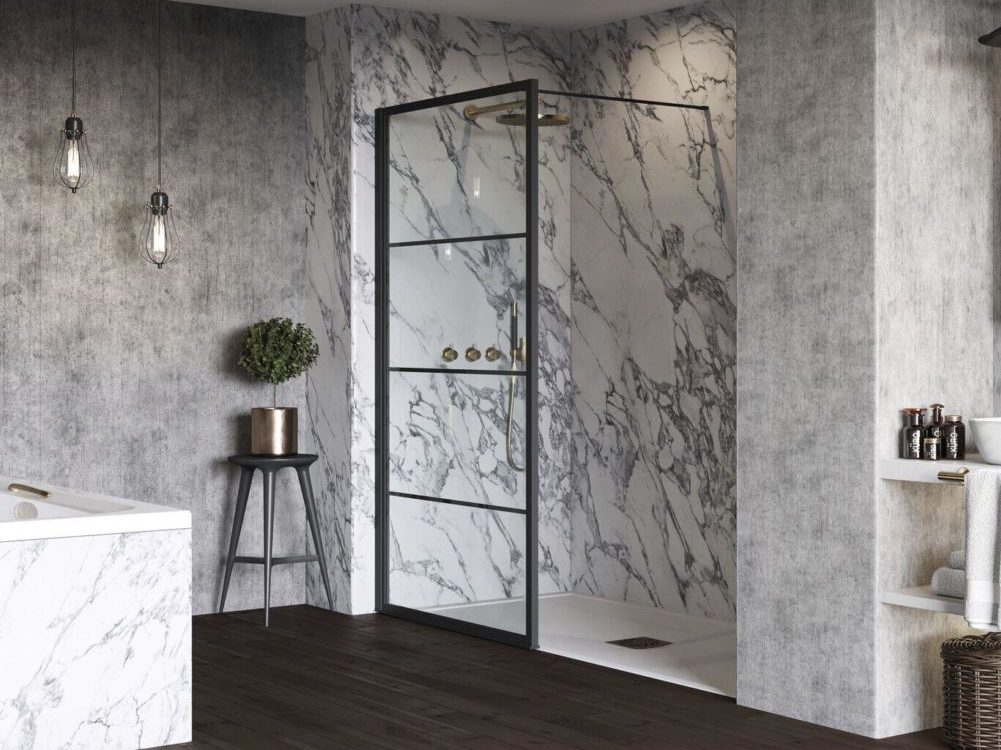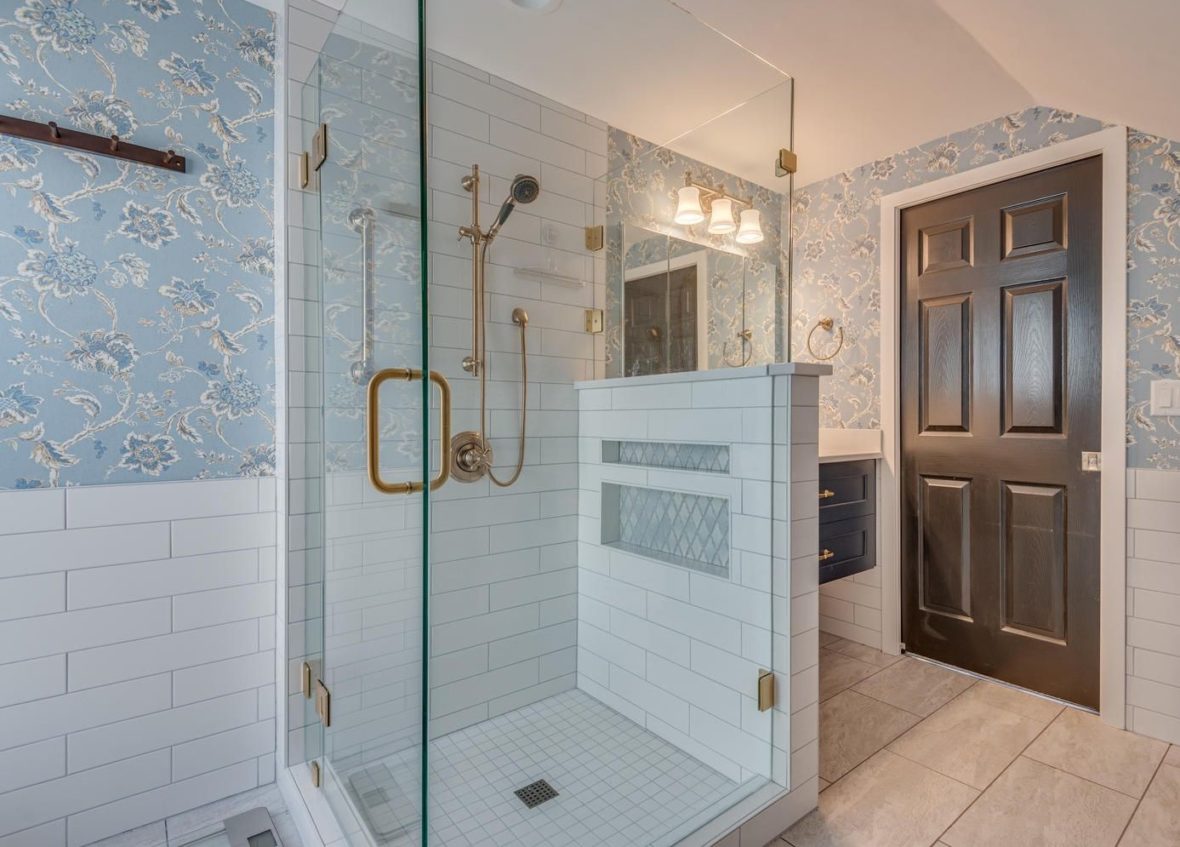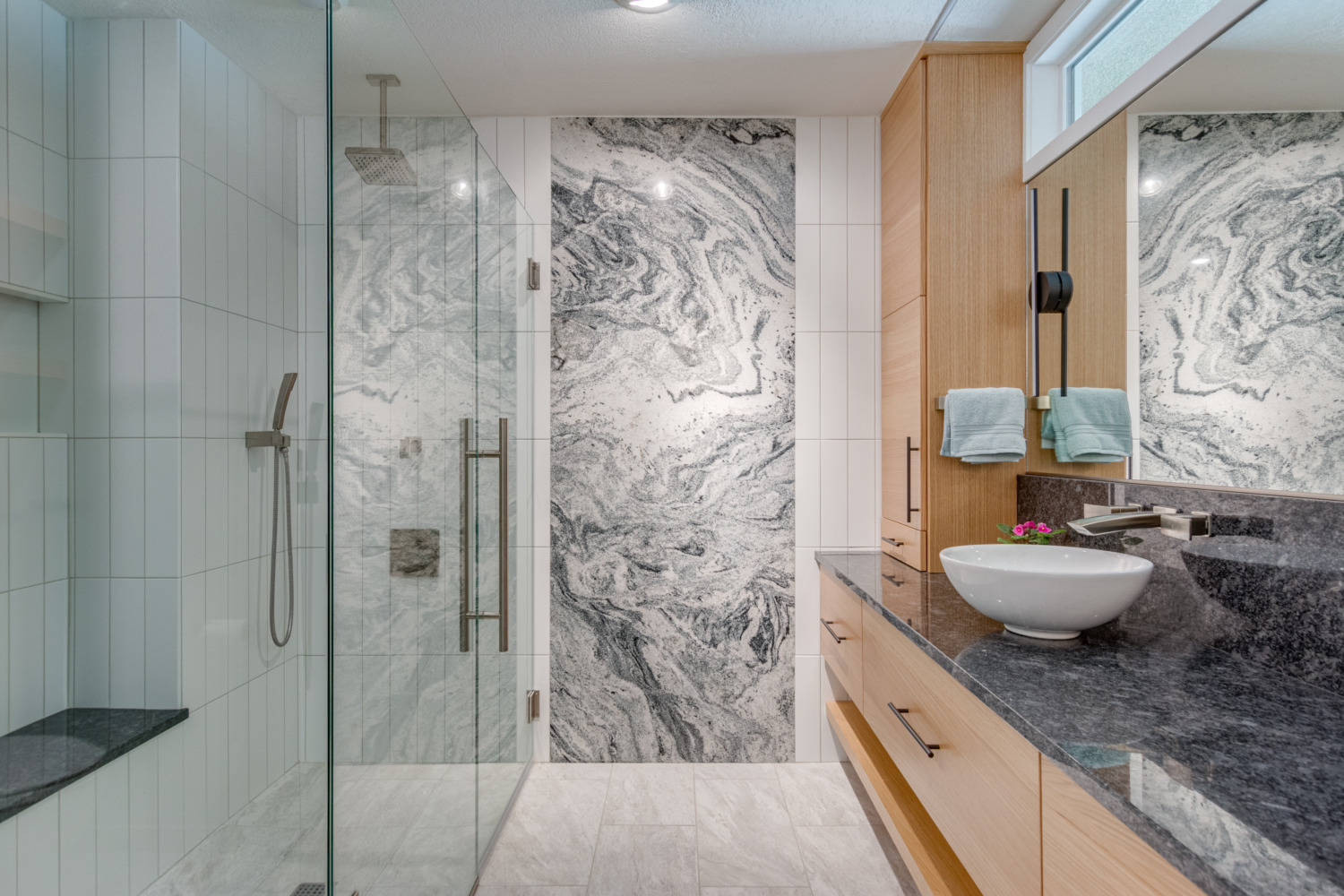Tired of your old fiberglass tub-shower combo?
Switching out your bathtub for a walk-in shower is a great way to improve your bathroom’s visual and functional design. With several different options ranging from simple fiberglass inserts to ultra-contemporary slab wall showers, tub to shower conversions are versatile and affordable remodeling projects.
Many homeowners choose to replace their bathtub/shower combo for a walk-in shower to avoid having to step over the tub wall. Bathtubs present several mobility challenges that are not present in showers. Whether it be in preparation for a major surgery or to manage a more long-term mobility restriction, making your shower more accessible can improve the quality and ease of your life.
At Lamont Bros., our construction teams have performed dozens of tub to shower conversions, both as standalone projects and as part of larger remodels. To help you plan for your bathroom remodel, you can read all about tub to shower conversions here, including the different options, costs, strengths, and weaknesses.
There are four main options when it comes to replacing your old bathtub/shower combo.
Fiberglass Insert Shower
A fiberglass shower insert is a prefabricated waterproof enclosure designed to be installed as one piece.
As the entry-level shower option, fiberglass shower inserts are the least expensive option you can find. They are mass-produced using inexpensive materials and standardized sizing. This can be a huge benefit because they match the exact dimensions of the bath/shower combo that they replace.
However, fiberglass tubs have a shorter lifespan compared to other options. They are less durable and prone to chips, cracks, and tears, all of which can be very difficult to repair. Since they are usually manufactured in one piece, their enormous size can be extremely difficult or even impossible to move through a house. In cases like this, we’ll often use fiberglass inserts designed specifically for remodeling. These inserts come in 2-3 separate pieces to make transportation easier. Our build teams assemble the shower in the bathroom and take extra care to waterproof the seams with caulk.
In terms of design flexibility, fiberglass is extremely limited in colors and features. Some companies offer different finish colors, but a vast majority of fiberglass shower units are white. Also, due to the standardized sizing, fiberglass showers offer no spatial customizability, either.
Synthetic Shower Wall System
The next step up from fiberglass is the synthetic showerwall system. We typically use the Wetwall system shower by Wilsonart. Synthetic showerwalls use manufactured waterproof laminate slabs to enclose the shower area. These slabs come in several different finish styles, ranging from flat colors to marble and wood patterns.
Synthetic showers are more visually engaging and come with the added benefit of being relatively affordable. With several color and pattern options, it’s likely you’ll find one that fits well with your bathroom’s style. Wetwall systems also offer more flexibility in terms of sizing, since each panel can be custom-fit to the space.
Another benefit of synthetic showers is that they have no grout, which can be difficult to clean and maintain. Since the entire shower wall is one solid surface, the only place where you need sealant is in the corners. Most installers will use caulk here, meaning you won’t have to worry about scrubbing grout whenever you clean your shower.
In the broad scope of walk-in showers, synthetic systems still tend to be less flexible than some other options. Because the slabs are only for use on the wall, the shower must be built on a shower base. Pre-made cast iron or fiberglass shower bases come in standard sizes, which in turn limit how customizable your shower’s size will be. Tile, acrylic, and quartz bases offer more spatial freedom, but at a much higher cost.
Custom Tile Shower
With a wide range of style, color, and sizing options, tile showers feature the most customizability among the different types of showers.
Whether it be porcelain, quartz, ceramic, or glass, almost any tile you can find makes for a fantastic shower wall if installed correctly. Not only are there several tile materials available, but there are also many tile sizes, shapes, and patterns you can choose from, too.
If you want to go small, some mosaic tiles are less than an inch wide. Want big tiles? Consider the jumbo 48”x48” options or anything in between. You can even mix, match, cut, and combine your tiles however you want them to look.
One of the disadvantages of going with tile is that it requires many hours of specialized labor to install. Depending on the size and complexity of your shower, your labor costs alone will likely be at least double what they would be with any other option.
Then there’s the grout issue. On a shower installation, a good tile setter will use epoxy grout, which is completely sealed and requires less maintenance. However, even though it doesn’t allow water to saturate, you’ll still need to regularly clean it from soap residue and anything that’s sitting on top of the grout.
Porcelain or Stone Slab Shower
If you’re looking for the most stylistically current, visually appealing tub to shower conversion money can buy, the slab shower is for you.
A slab shower features shower walls made from a single slab of stone or other solid-surface material. Many homeowners love the seamless slab design of these showers, which are becoming renowned for their striking visual appeal.
The natural stone aesthetic is becoming increasingly popular in bathroom design. Slab showers have been around as a concept for a long time, but have only recently made their way into the mainstream as a design trend.
The challenge with slab showers is that the immense size of the material can make it difficult to access the space. As with fiberglass inserts, there has to be a large enough pathway between the door and the shower in order to install the slab.
Slabs also are not suitable for especially complex spaces. If your shower has several complex angles or curved walls, it becomes very difficult to cut the slabs to fit.
Want to talk to a designer about your tub to shower conversion?
Designing a bathroom remodel can be a lot of fun and can give you a great remodeled space in the end. While you continue to research your plans for a new bathroom, gather some inspiration by taking a look at some Lamont Bros.’ latest bathroom projects.
As a full-service design and remodeling company, Lamont Bros. is here to guide you through the challenges of remodeling. If you’d like to learn more about converting your tub to a walk-in shower, click the link below to schedule a free video call with one of our design consultants.




